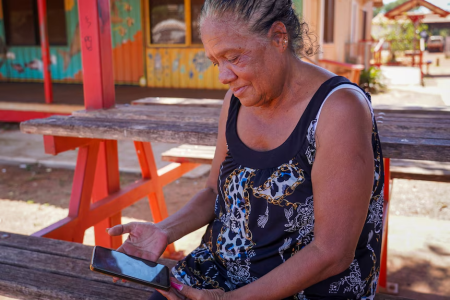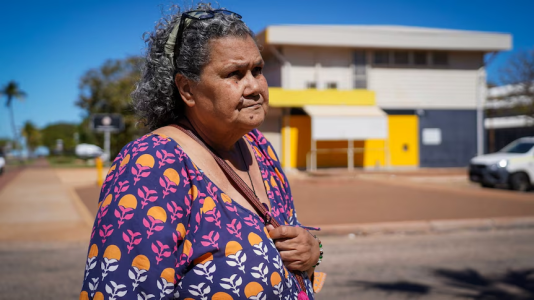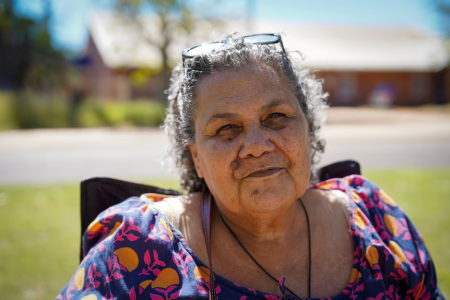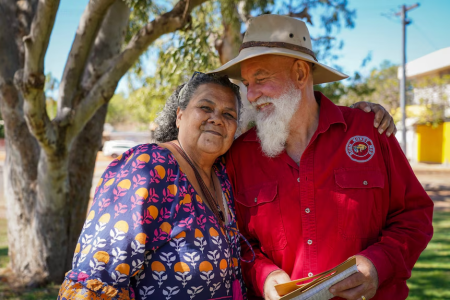Banks to refund $60m of 'excessive' fees but CommBank withholds $270m
By
ABC News
- Replies 0
Thousands of Australians wrongly slugged more than $60 million in excessive bank fees could soon get a refund, but the national corporate regulator says Commonwealth Bank customers may not receive a cent.
The Australian Securities and Investments Commission (ASIC) today revealed it had put banks on notice for incorrectly charging low-income earners who receive Centrelink payments, such as JobSeeker and Age and Disability Support payments.
While the watchdog said a review of 21 banks found 800,000 customers were eligible for refunds, millions of Australians could be impacted.
It comes one year after the corporate watchdog found four of the country's banks, which had a significant number of First Nations customers, had caused "financial distress".
She said she was only made aware of the charges after Kimberley financial counsellor Alan Gray spotted the fees in her bank statements while investigating an unrelated scam.
"They were taking [fees] all these years, and we're only on low income, all on disability, so it's a bit unfair," Ms Potts said.
"It's just nice this is coming to the surface. We've been taken advantage of for the last 10 years."
Mr Gray applied for Ms Potts's refund in May but said he was unsuccessful until the bank "did a U-turn".
"I am absolutely furious with Commonwealth Bank," he said.
"This is the richest bank in Australia profiting from the poorest people on the continent.
"There is no justification for any of the banks to hang on to the income of the poorest people just to boost their share price."
That report led to a promise of $33 million in refunds.
The latest ASIC report stated ANZ would commit to return $47.9 million, Westpac promised more than $9.9 million, while eligible Bendigo Bank customers will receive a share of $155,000.
But the corporate regulator said Commonwealth Bank — including subsidiary Bankwest — would not refund the $270 million it had charged low-income customers between July 2019 and October 2024.
Instead, the bank said it would move 1.5 million eligible customers to a yet-to-be-approved "new nominal fee account".
"That will address problems going forward for those people, but what it doesn't do is set things right for the fees they've been charged in the past," ASIC commissioner Alan Kirkland said.
"That is extremely disappointing."
In Djarindjin, almost 200km away from the nearest bank branch, residents said there was confusion over who was entitled to a refund.
Nyikina woman and Commonwealth Bank customer Audrey Shadforth said she found out about the initial refunds through word-of-mouth.
"I remember one of my family members got some money back," she said.
When the ABC met with Ms Shadforth, she had just received a letter confirming she would be repaid $400.
Djarindjin mother and Bardi-Jawi woman Jenaya Cox said she did not know if she was eligible.
"It would help me out with the bills I need to pay," she said.
"I have a daughter now, so it's a bit hard."
"There should have been much more communication, perhaps much more in-language, to let everyone know," she said.
"I believe some people got paid, other people didn't.
"It's just a little bit of a shemozzle in relation to people being given a fair go."

Some institutions increased the number of interpreters on designated customer care helplines, while others had offered cultural awareness training to staff.
But both financial counsellors agreed banks should do more.
"It doesn't matter how many times a financial counsellor tells the big banks there is no street delivery of mail in the outback — they never, ever get the message," Mr Gray said.
"They [our clients] don't have a home computer, they don't have a desk and a chair, they don't have a home internet connection, and they have no way of storing documents."
"I feel a lot more could be done to communicate in a fair and equitable way so people can understand what is going on," Ms Johnson said.
Westpac and Bendigo Bank did not provide an official comment.
An ANZ spokesperson said it had made "a number of changes" since ASIC's first report and "taken a deliberate decision to expand its remediation payments, leading to a larger cohort of customers refunded in fees and interest".
The spokesperson said an "expansive approach to remediation is the right thing to do".
A Commonwealth Bank spokesperson said it had already made repayments of $25 million in relation to ASIC's first report on "a goodwill basis".
However, in relation to the $270 million that ASIC's latest report cites should be refunded, the spokesperson said the fees "were disclosed to customers and were charged in accordance with their terms and conditions".
"Where customers have incurred unusually high fees we consider goodwill adjustments where appropriate while continuing to provide access to lower-fee options," the spokesperson said.
By Esse Deves
The Australian Securities and Investments Commission (ASIC) today revealed it had put banks on notice for incorrectly charging low-income earners who receive Centrelink payments, such as JobSeeker and Age and Disability Support payments.
While the watchdog said a review of 21 banks found 800,000 customers were eligible for refunds, millions of Australians could be impacted.
It comes one year after the corporate watchdog found four of the country's banks, which had a significant number of First Nations customers, had caused "financial distress".
'Taken advantage for years'
Susan Potts lives in Broome, 2,200 kilometres north of Perth, and was recently refunded 10 years of fees charged by the Commonwealth Bank.She said she was only made aware of the charges after Kimberley financial counsellor Alan Gray spotted the fees in her bank statements while investigating an unrelated scam.
"They were taking [fees] all these years, and we're only on low income, all on disability, so it's a bit unfair," Ms Potts said.
"It's just nice this is coming to the surface. We've been taken advantage of for the last 10 years."
Mr Gray applied for Ms Potts's refund in May but said he was unsuccessful until the bank "did a U-turn".
"I am absolutely furious with Commonwealth Bank," he said.
"This is the richest bank in Australia profiting from the poorest people on the continent.
"There is no justification for any of the banks to hang on to the income of the poorest people just to boost their share price."
CommBank refuses to pay
ASIC's first report revealed the Commonwealth Bank, Westpac, Bendigo Bank and ANZ knowingly kept more than 150,000 Indigenous customers in high-fee accounts despite qualifying for an account with minimal charges.That report led to a promise of $33 million in refunds.
The latest ASIC report stated ANZ would commit to return $47.9 million, Westpac promised more than $9.9 million, while eligible Bendigo Bank customers will receive a share of $155,000.
But the corporate regulator said Commonwealth Bank — including subsidiary Bankwest — would not refund the $270 million it had charged low-income customers between July 2019 and October 2024.
Instead, the bank said it would move 1.5 million eligible customers to a yet-to-be-approved "new nominal fee account".
"That will address problems going forward for those people, but what it doesn't do is set things right for the fees they've been charged in the past," ASIC commissioner Alan Kirkland said.
"That is extremely disappointing."
Barriers of distance
It is a similar story in other regional and remote communities.In Djarindjin, almost 200km away from the nearest bank branch, residents said there was confusion over who was entitled to a refund.
Nyikina woman and Commonwealth Bank customer Audrey Shadforth said she found out about the initial refunds through word-of-mouth.
"I remember one of my family members got some money back," she said.
When the ABC met with Ms Shadforth, she had just received a letter confirming she would be repaid $400.
Djarindjin mother and Bardi-Jawi woman Jenaya Cox said she did not know if she was eligible.
"It would help me out with the bills I need to pay," she said.
"I have a daughter now, so it's a bit hard."
Refunds a 'shemozzle'
Djarindjin financial counsellor Veronica Johnson said many of her remote clients had already been subject to financial abuse in the past."There should have been much more communication, perhaps much more in-language, to let everyone know," she said.
"I believe some people got paid, other people didn't.
"It's just a little bit of a shemozzle in relation to people being given a fair go."

Residents in remote Indigenous communities, such as Audrey Shadforth, were charged "excessive" bank fees. (ABC Kimberley: Esse Deves)
ASIC finds small progress
ASIC's report found some banks had made progress to "better understand First Nations customers".Some institutions increased the number of interpreters on designated customer care helplines, while others had offered cultural awareness training to staff.
But both financial counsellors agreed banks should do more.
"It doesn't matter how many times a financial counsellor tells the big banks there is no street delivery of mail in the outback — they never, ever get the message," Mr Gray said.
"They [our clients] don't have a home computer, they don't have a desk and a chair, they don't have a home internet connection, and they have no way of storing documents."
"I feel a lot more could be done to communicate in a fair and equitable way so people can understand what is going on," Ms Johnson said.
Banks respond
The ABC contacted ANZ, Westpac, Bendigo Bank and the Commonwealth Bank for comment.Westpac and Bendigo Bank did not provide an official comment.
An ANZ spokesperson said it had made "a number of changes" since ASIC's first report and "taken a deliberate decision to expand its remediation payments, leading to a larger cohort of customers refunded in fees and interest".
The spokesperson said an "expansive approach to remediation is the right thing to do".
A Commonwealth Bank spokesperson said it had already made repayments of $25 million in relation to ASIC's first report on "a goodwill basis".
However, in relation to the $270 million that ASIC's latest report cites should be refunded, the spokesperson said the fees "were disclosed to customers and were charged in accordance with their terms and conditions".
"Where customers have incurred unusually high fees we consider goodwill adjustments where appropriate while continuing to provide access to lower-fee options," the spokesperson said.
By Esse Deves










